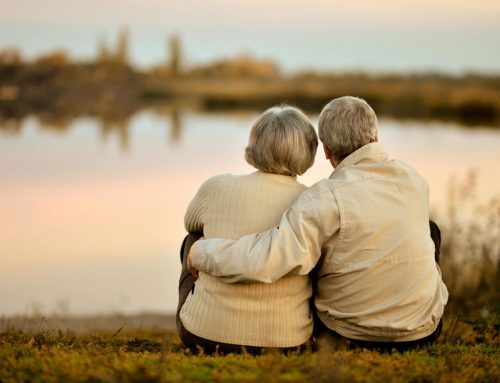Brain damage may occur after a fall, sports injury, or car accident. However, such impairments may also result from brain tumors, stroke, aneurysms, or other medical conditions. Regardless of the cause, brain damage frequently causes a few unhealthy habits, such as dietary changes, increased stress, and sleep problems. The severity of these changes varies, depending on the extent of the impairment.
Neurological changes caused by such damage can’t always be repaired, but treatment could help manage the symptoms. Depending on the severity, you may require rehabilitation therapy, such as physical therapy, occupational therapy, speech therapy, and counseling as well as [Traumatic Brain Injury] TBI care. For more information on possible problems after brain damage, keep reading.

Common Habits Linked to Brain Damage
A brain injury affects various aspects of life. Loss of independence, reduced abilities, and altered relationships are frequent complaints. Knowing what physical, behavioural, and cognitive changes to expect may make it easier to cope when they occur. The following sections cover the most common habits.
Prolonged stress
Chronic stress hinders your physical and mental health. The body reacts by increasing circulation, blood pressure, and heart rate. Cortisol and norepinephrine trigger the fight-or-flight response but have negative cognitive effects long-term.
According to experts, prolonged stress is a recurring habit among those with brain damage. The injured areas won’t function as they used to, reducing function and ability, and increasing stress. Difficulty managing stressful situations aggravates the condition, prolonging the distress.
Sleeping disorders
Brain damage often leads to poor sleep habits. These issues vary depending on the severity of the damage and the location of the injury. For instance, insomnia prevents you from falling or staying asleep. Not being well-rested often worsens the already-altered behavioral or cognitive issues from the injury.
Other common sleep problems include excessive daytime sleepiness, delayed sleep phase syndrome, or narcolepsy. Sleepwalking, sleep apnea, teeth grinding, or restless leg syndrome may also occur.
Poor eating habits
Poor eating habits are another common complication of brain damage. According to recent studies, brain injuries often result in eating disorders. But experts state that these disorders aren’t identical to typical afflictions.
Those with brain disorders often experience unexpected appetite disorders. They may refuse to eat, claiming they aren’t hungry, or forget to eat altogether. Binge eating is another possible symptom, causing individuals to overeat or eat more often. They often choose unhealthy options, causing unhealthy weight gain.
Social isolation
Humans are social creatures, craving interactions with like-minded individuals. Unfortunately, our habit of reaching out to others often deteriorates after brain damage occurs. The longer we’re isolated, the harder communication becomes for emotional or physical support.
Experts state that social isolation has several possible causes. Brain injuries often result in mobility limitations, reduced cognitive function, and emotional distress. Depression, anxiety, and mood disorders are also common, limiting interactions even further.
Physical inactivity
Head trauma doesn’t only affect your mental and emotional state. Brain damage also alters your physical self, limiting your otherwise healthy habits. You may experience weakness, fatigue, balance problems, mobility issues, and muscle spasms.
Reduced physical function reduces many of your abilities and functions. In some cases, even walking becomes difficult without mobility equipment or assistance. You may also experience reduced motivation due to such limitations, resulting in inactivity and further weakness.
Resources:
- American Brain Foundation, Aug. 27, 2024, How Stress Affects the Brain
https://www.americanbrainfoundation.org/how-stress-affects-the-brain/ - PMC, May 25, 2022, Neurobiological Links between Stress, Brain Injury, and Disease
https://pmc.ncbi.nlm.nih.gov/articles/PMC9159819/ - MSKTC, Sleep and Traumatic Brain Injury
https://msktc.org/tbi/factsheets/sleep-and-traumatic-brain-injury - BIAAZ, The Complicated Relationship Between Brain Injury and Eating Disorders
https://biaaz.org/brain-waves/the-complicated-relationship-between-brain-injury-and-eating-disorders/ - Frontiers, July 13, 2022, Understanding Loneliness in Brain Injury: Linking the Reaffiliation Motive Model of Loneliness With a Model of Executive Impairment
https://www.frontiersin.org/journals/integrative-neuroscience/articles/10.3389/fnint.2022.883746/full - Headway, Physical Effects of Brain Injury
https://www.headway.org.uk/about-brain-injury/individuals/effects-of-brain-injury/physical-effects-of-brain-injury/
This content comprises informative and educational resources only and can not be considered as a substitute for professional health or medical guidance. Reliance on any information provided in this article is solely at your own risk. If you have any inquiries or apprehensions about your medical condition or health goals, talk with a licensed physician or healthcare provider.






Leave A Comment